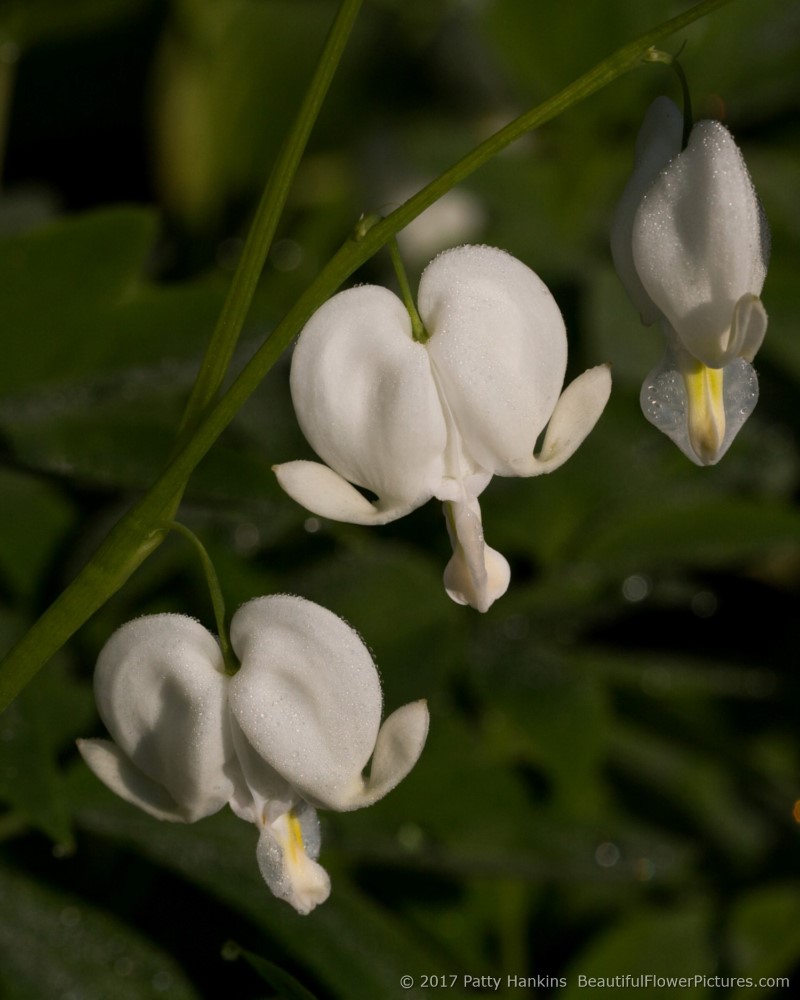
by hankinslawrenceimages | Feb 10, 2017 | Flowers, Papaveraceae Family
With Valentine’s Day just a few days away, I thought I’d share some of my favorite photos of heart shaped flowers I’ve taken over the years.
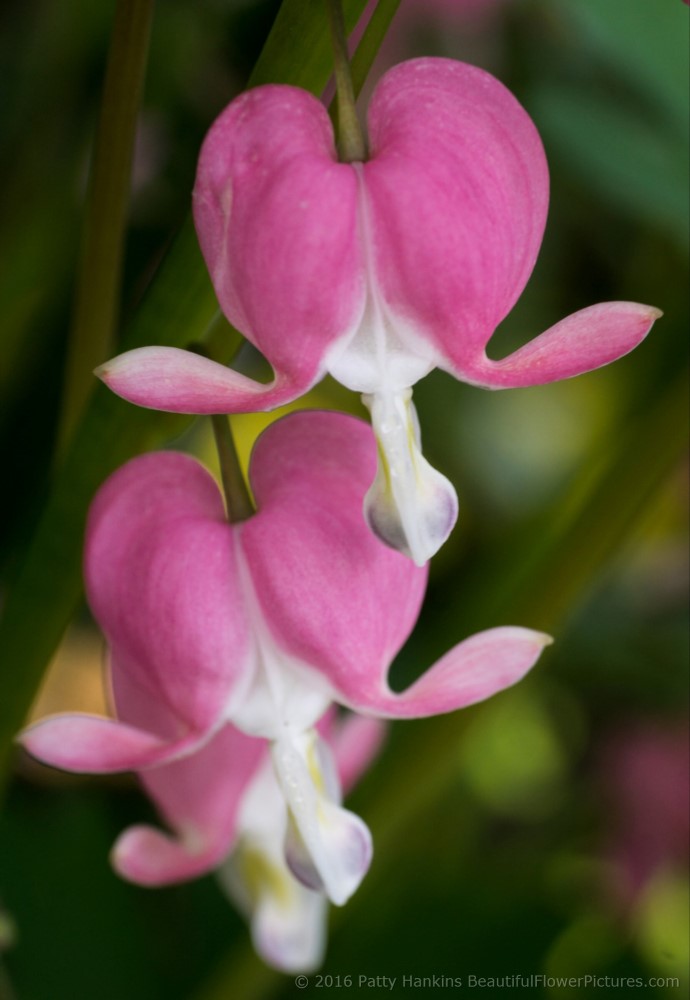
Bleeding Hearts – dicentra spectabilis © 2016 Patty Hankins

Bleeding Hearts © 2017 Patty Hankins
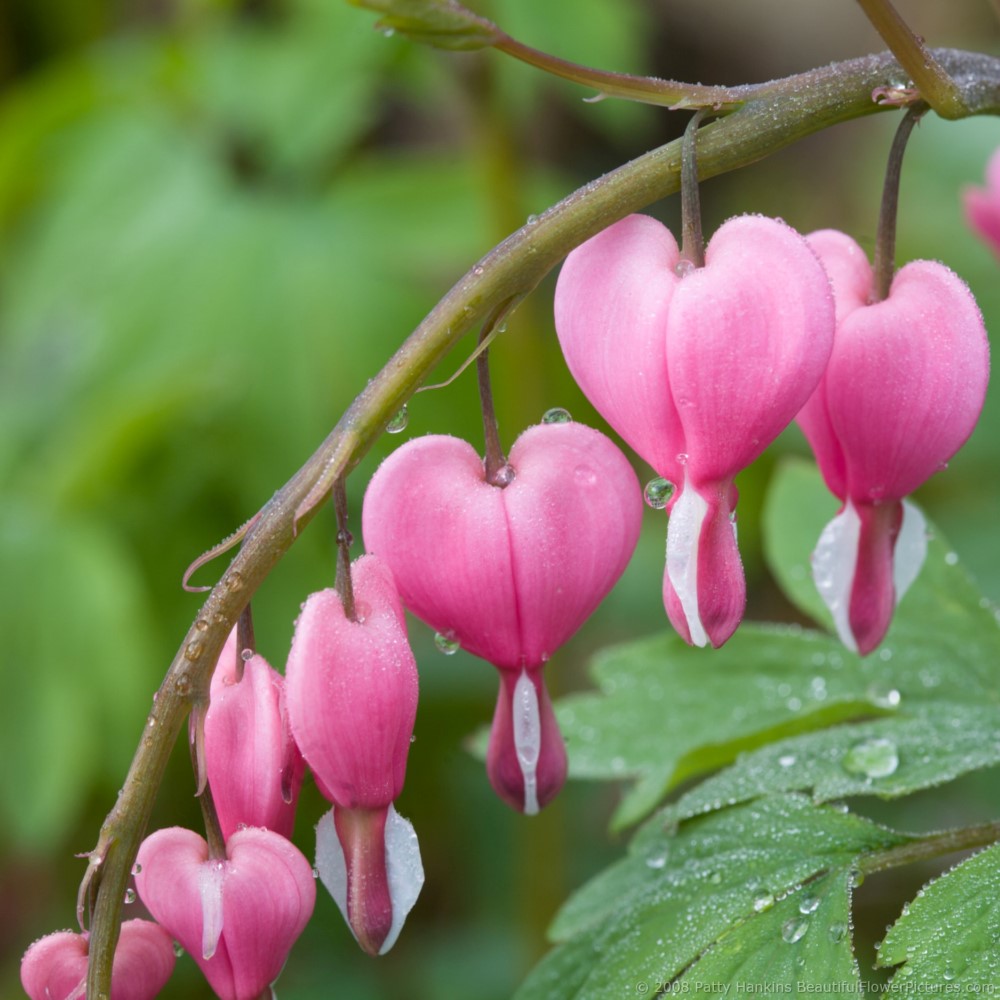
Bleeding Hearts © 2008 Patty Hankins
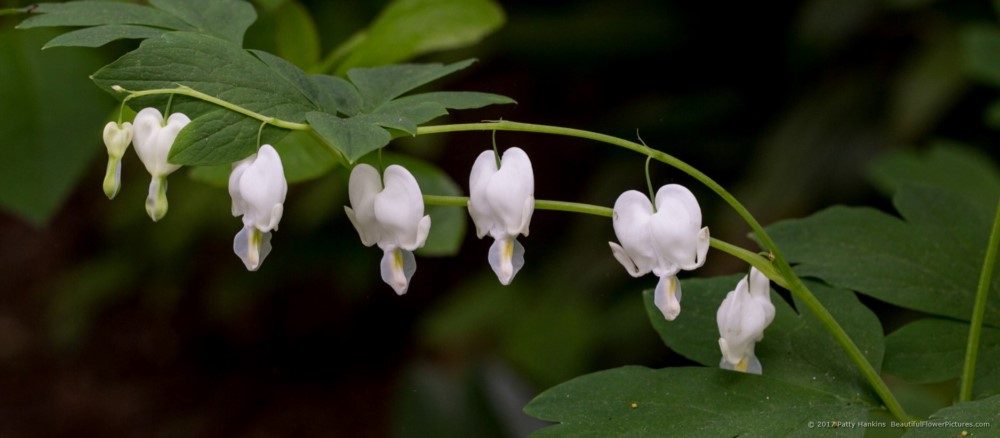
Bleeding Hearts © 2017 Patty Hankins
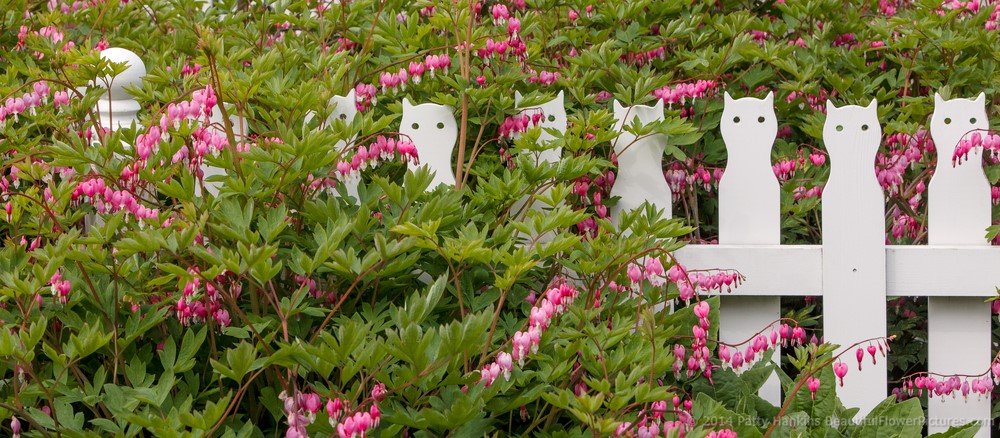
Along the Fence © 2014 Patty Hankins
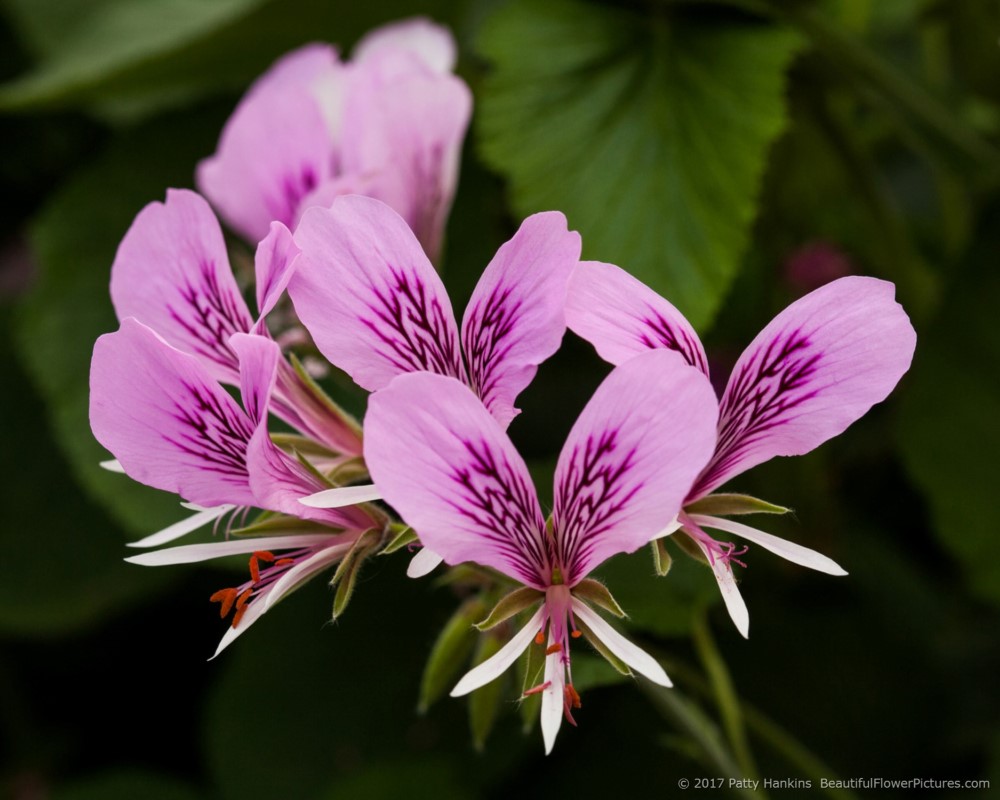
Heart-Leaf Pelargonium © 2017 Patty Hankins
Two of the bleeding hearts photos are available as matted prints in my store at http://beautifulflowerpictures.com/store/bleeding-hearts-2/ if you’d like some heart-shaped flowers to brighten up your home or office.
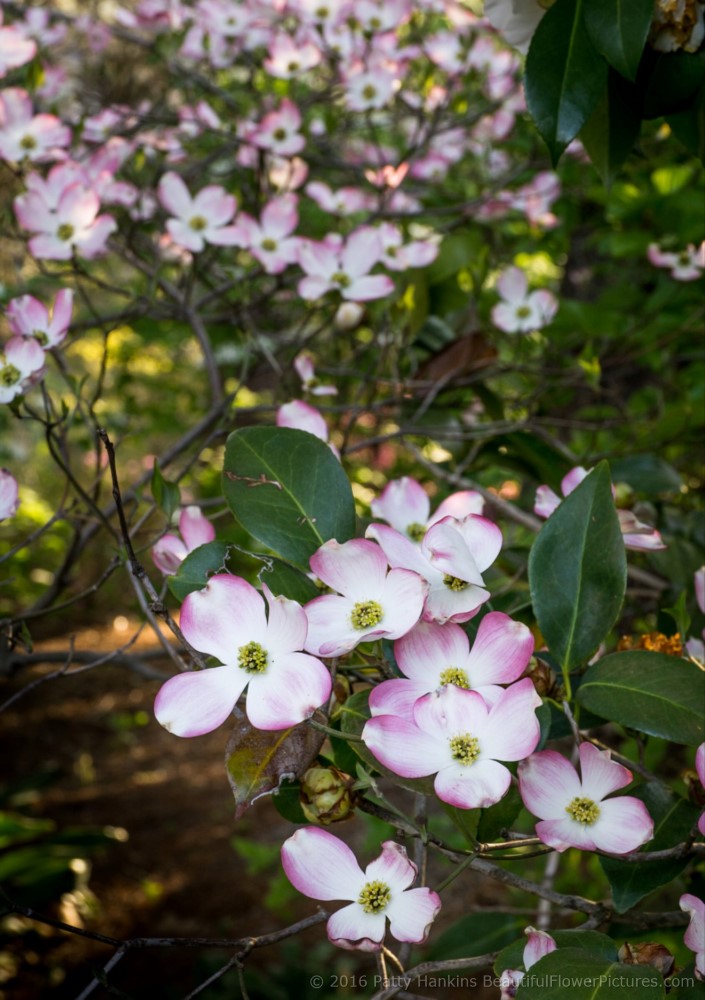
by hankinslawrenceimages | May 16, 2016 | Cornaceae Family, Flowers, Iridaceae Family, Papaveraceae Family, Violaceae Family
In mid-April, I spent a wonderful morning photographing at Green Spring Gardens in Alexandria, Virginia. Like most of the gardens, Green Spring has flowers and plants to photograph most of the year. In the spring – Green Spring really shines. Mid-April through Mid-May is my favorite time of year to visit this lovely garden. Here’s what I found to photograph in mid-April.
Bleeding Hearts – Dicentra Speactibilis
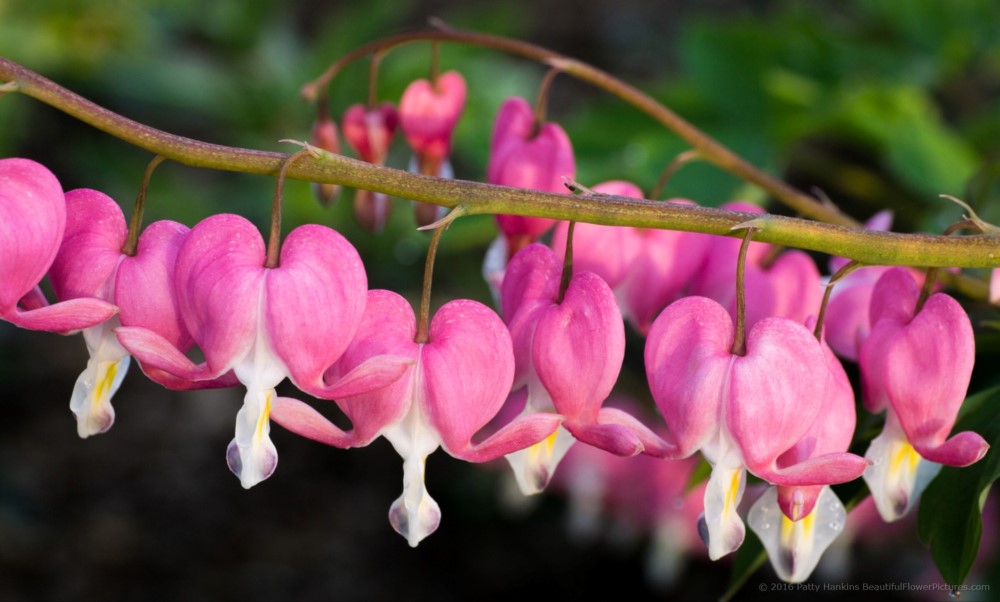
Bleeding Hearts – dicentra spectabilis © 2016 Patty Hankins

Bleeding Hearts – dicentra spectabilis © 2016 Patty Hankins
Pink Dogwood – Cornus florida

Pink Dogwood – cornus florida © 2016 Patty Hankins
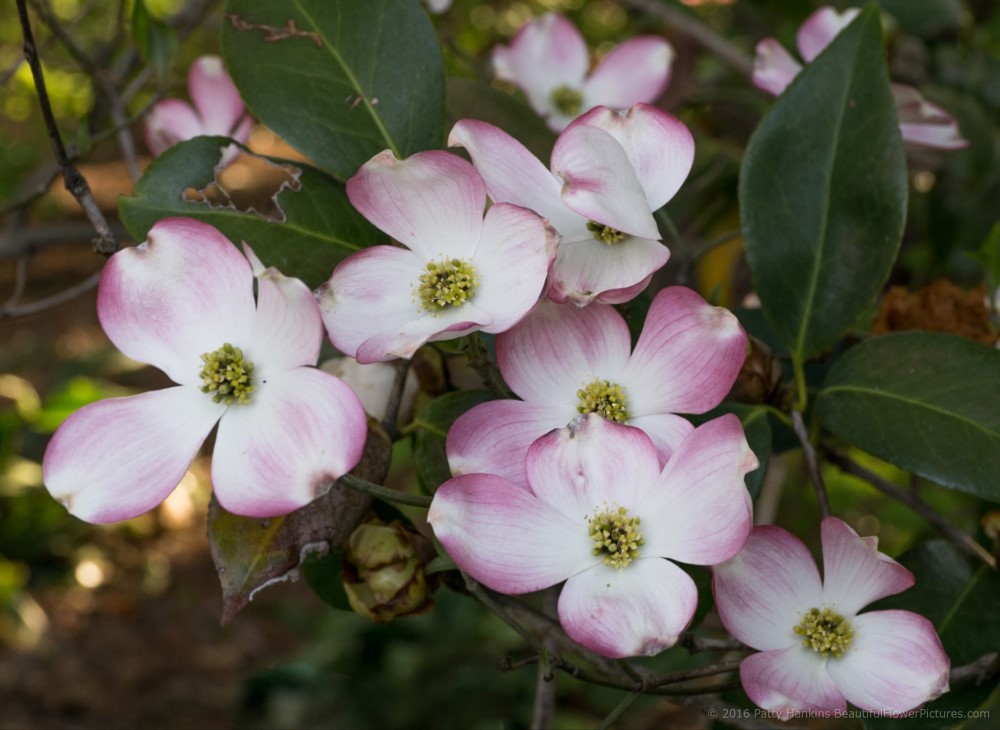
Pink Dogwood – cornus florida © 2016 Patty Hankins
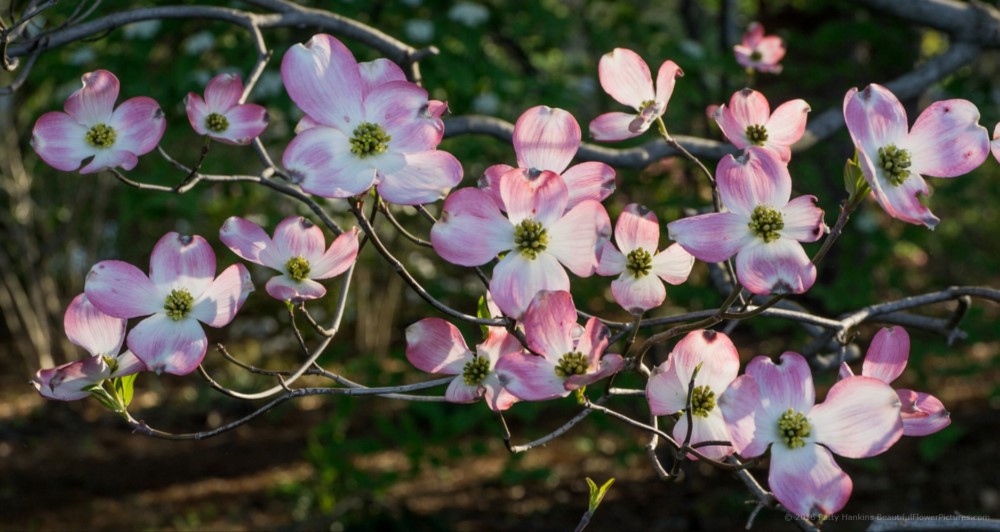
Pink Dogwood – cornus florida © 2016 Patty Hankins
Purple Pansies
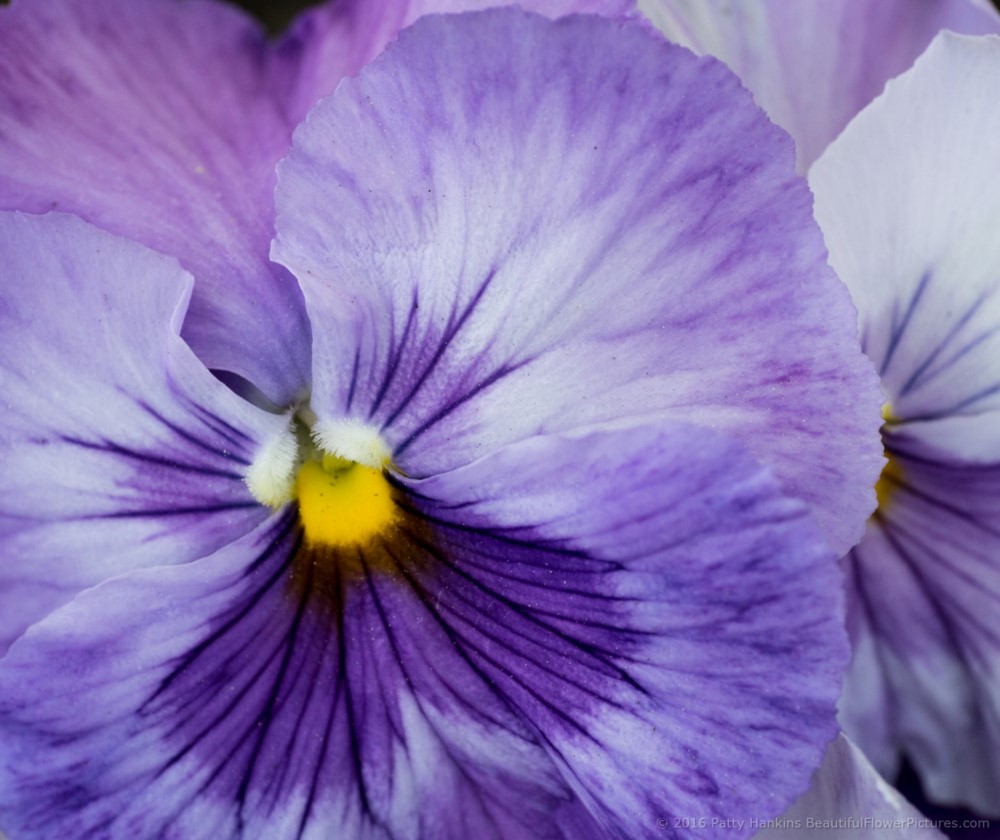
Purple Pansies © 2016 Patty Hankins
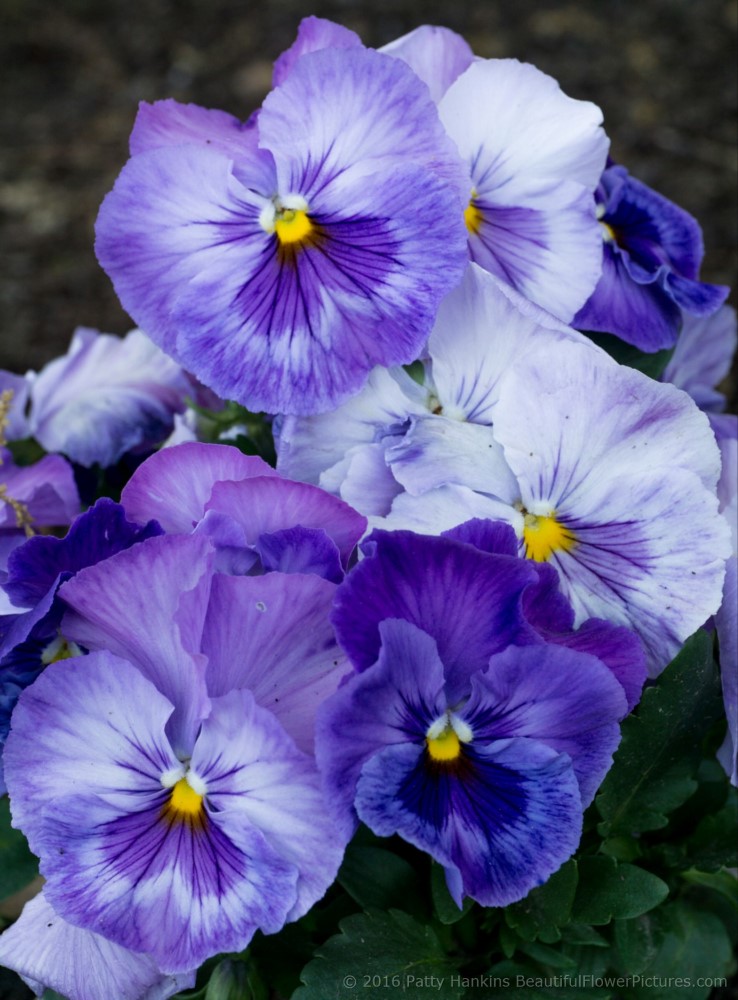
Purple Pansies © 2016 Patty Hankins
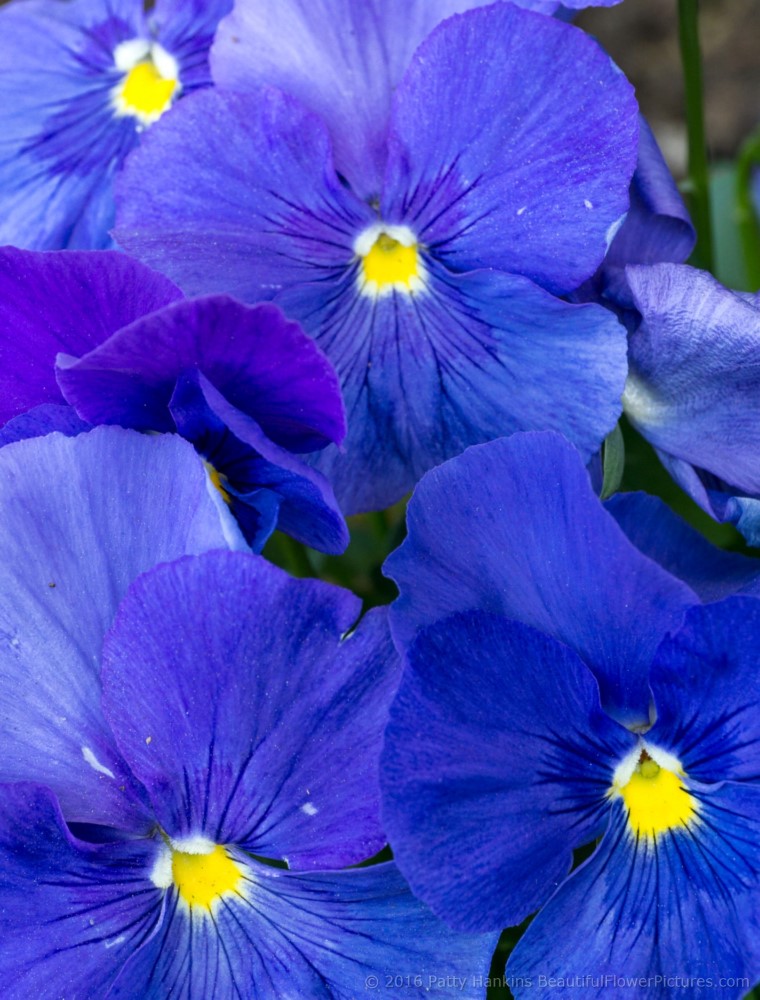
Purple Pansies © 2016 Patty Hankins
And the first bearded irises I’ve seen (and photographed) this year 🙂
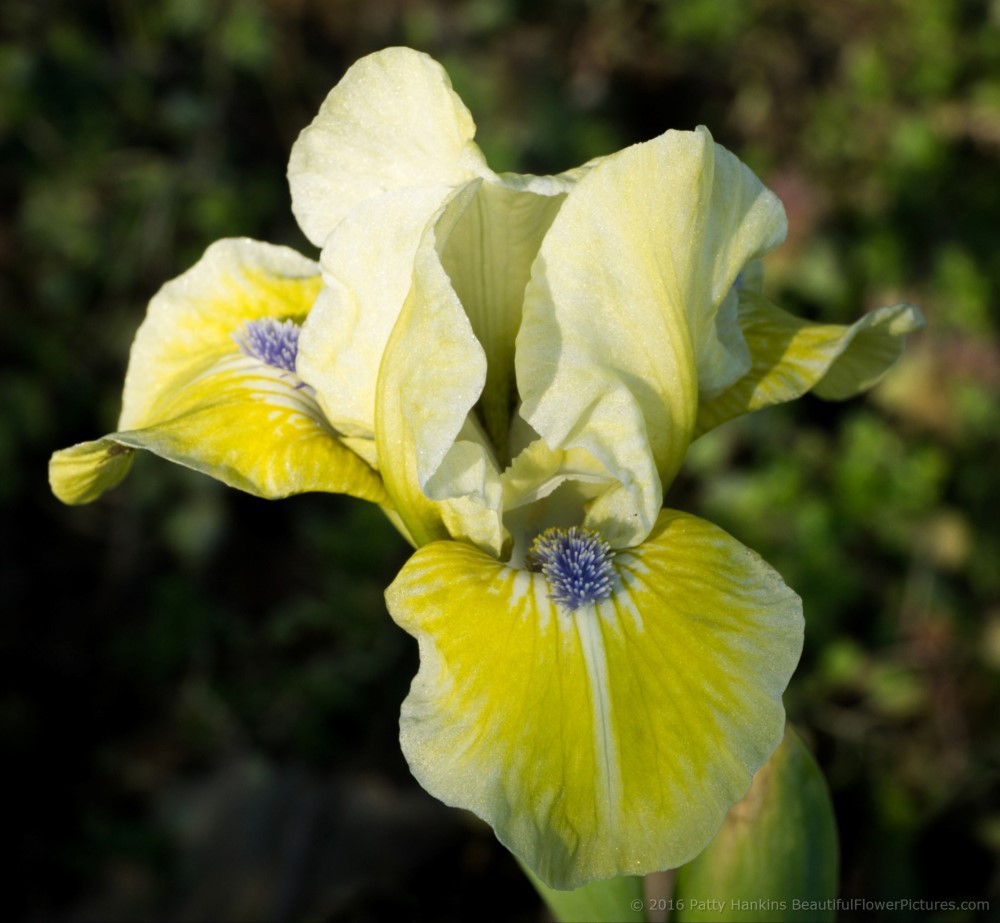
Bearded Iris © 2016 Patty Hankins
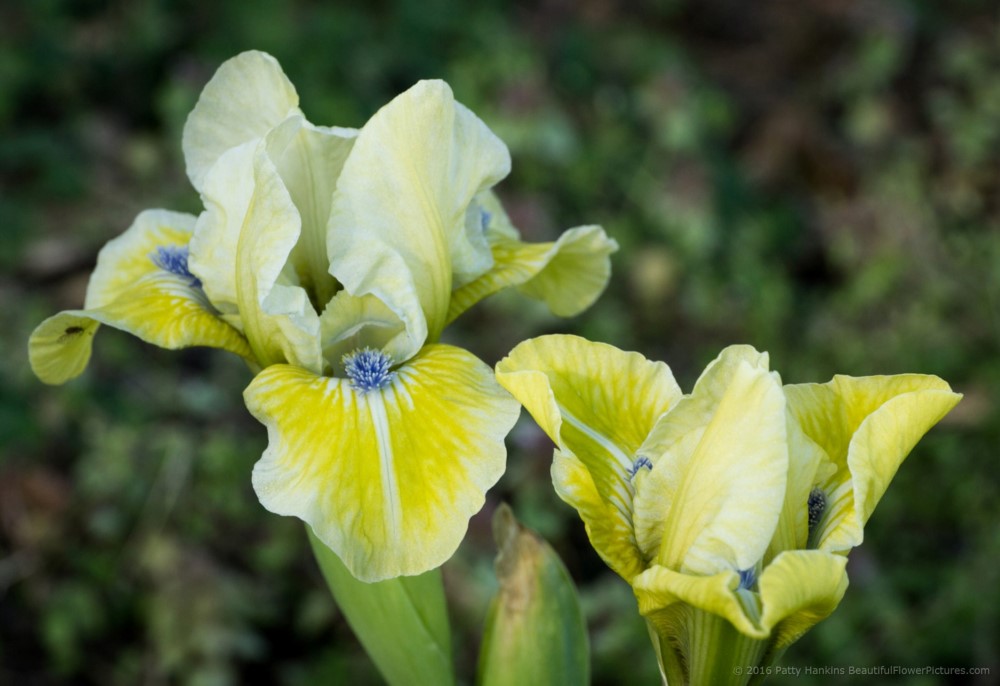
Bearded Iris © 2016 Patty Hankins
I hope you’ve enjoyed seeing the beauty I found at Green Spring Gardens earlier this year.
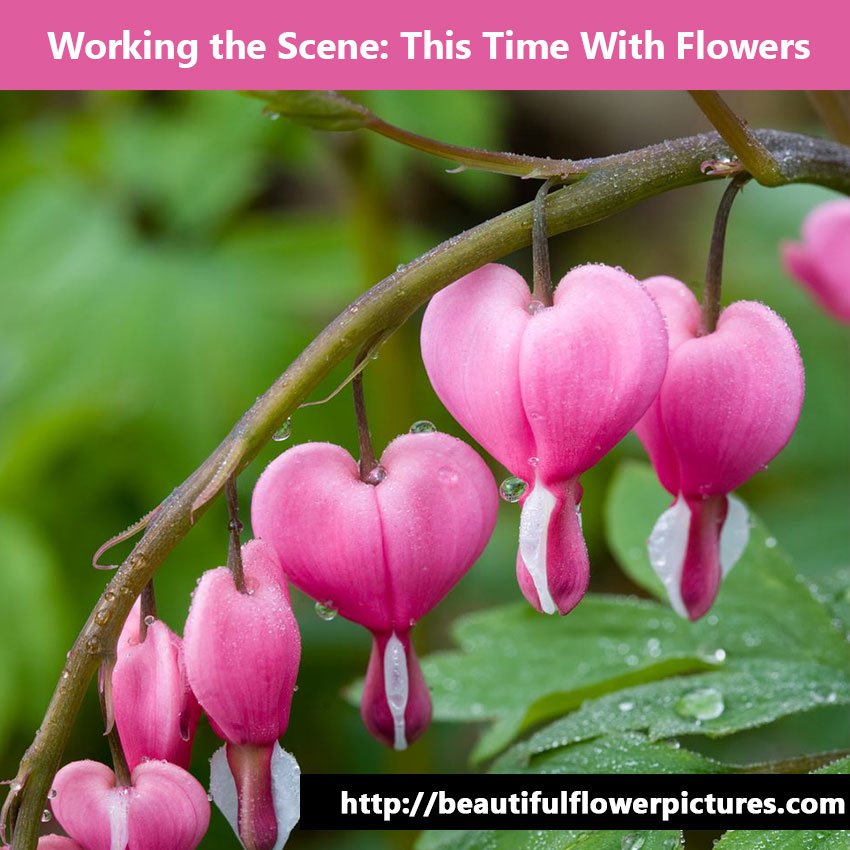
by hankinslawrenceimages | May 13, 2016 | Photo Tips
A few months ago I shared an article about Working the Scene where I talked about trying different compositions when you’re in the field photographing the landscape. Since then, I’ve gotten a few questions asking if I do the same thing when photographing flowers. And the answer is yes.
I do the same three things photographing a flower at a garden as I do when I’m photographing a landscape.
- Try different focal lengths. If you’re looking through a telephoto lens, you will get very different compositions then when you are using a wide angle lens. I often start with a wide angle lens, and then pull out my macro lens. Sometimes I’ll even pull out a longer telephoto lens if that’s what I need to get the photo I want.
- Try portrait and landscape compositions. The change from horizontal to vertical orientation of your camera will force you to include and exclude different parts of the scene, and will help you to think about the scene in different ways.
- Move around and try again. When I first see a flower or group of flowers I want to photograph, I usually see what I think is the perfect image in my mind. So I’ll set up my tripod and grab the lens I need, and create that photo. Then I’ll take a moment and review the image on the back of my camera to see if it’s what I want and more importantly, is it the best image I can create. If not, I’ll take another look at my subject and see if there is composition I like better, move my tripod, reassess my lens choice and take that photo. Re-evaluate and set up another shot if I still don’t have what I want. Most of the time I’ll create 4 or 5 very different compositions of a specific flower or group of flowers before deciding that I’ve what I’m looking for. Moving my tripod up or down, a few inches to the left or to the right can make all the difference in the world.
Here are some of my photos of a bleeding heart plant I took several years ago that illustrate how I work a scene with flowers
One photo I took was of the whole bleeding heart plant in front of a tree trunk and wall. Decided it was too busy and didn’t really show off the heart shaped flowers.
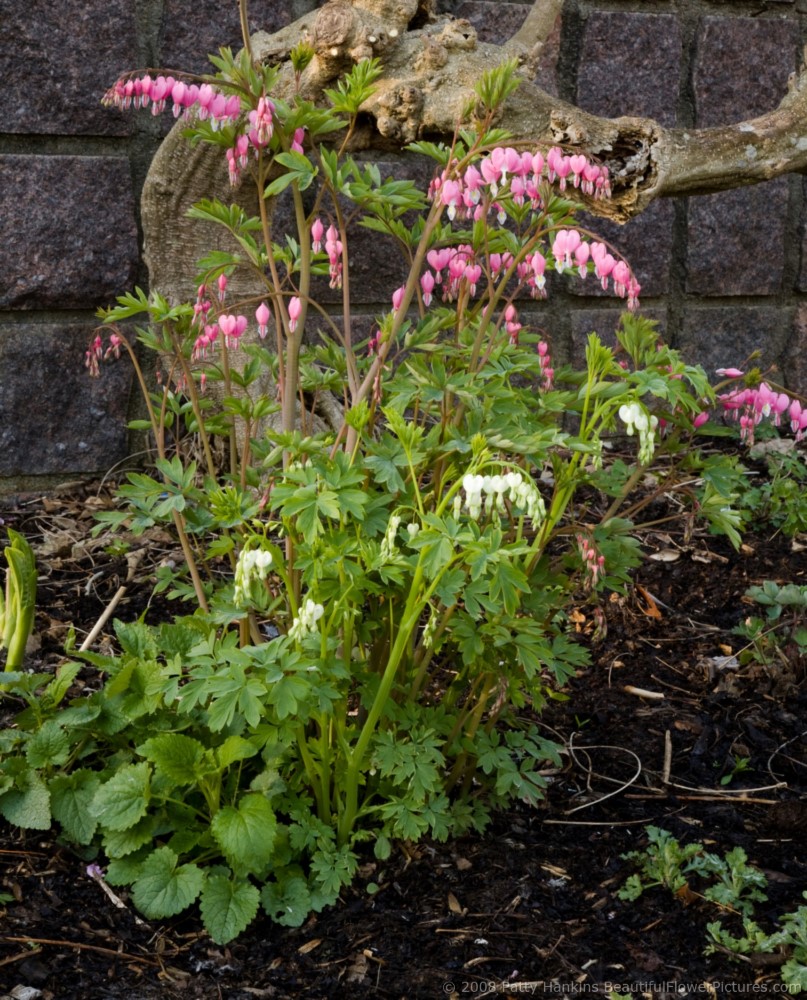
Bleeding Hearts © 2008 Patty Hankins
So I moved in closer to just included a few of the branches. I also changed my aperture so that the wall and tree trunk were no longer in sharp focus. Still not right.
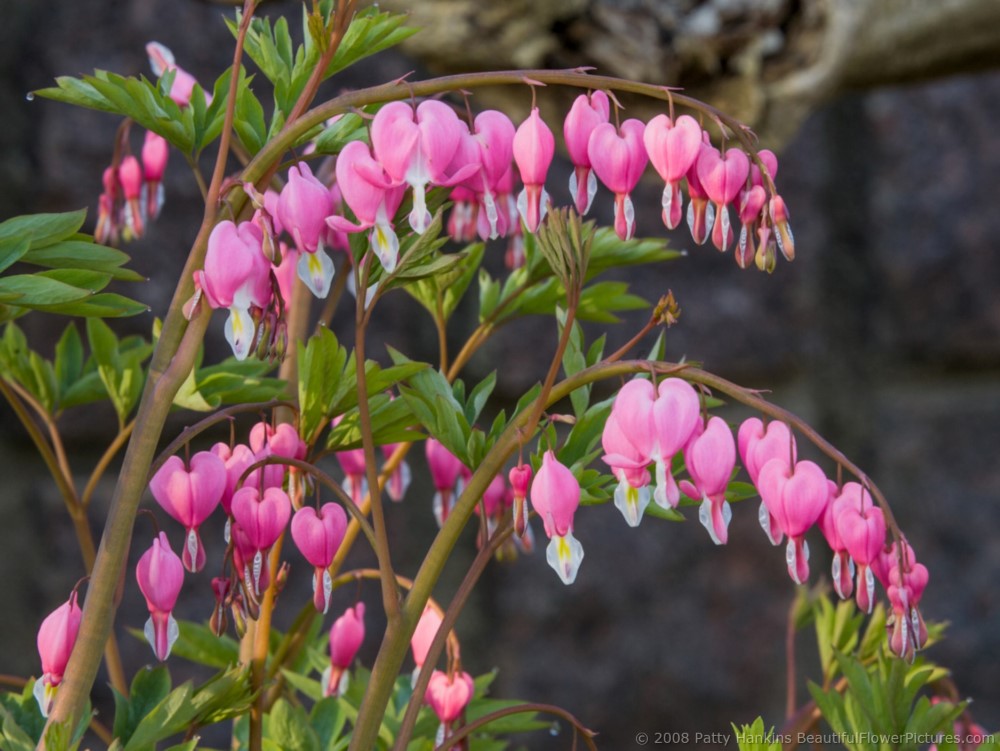
Bleeding Hearts © 2008 Patty Hankins
So next I moved my tripod around to another side of the plant, framed up just one branch of blossoms with a very shallow depth of field so only one flower was in sharp focus. Still not right.
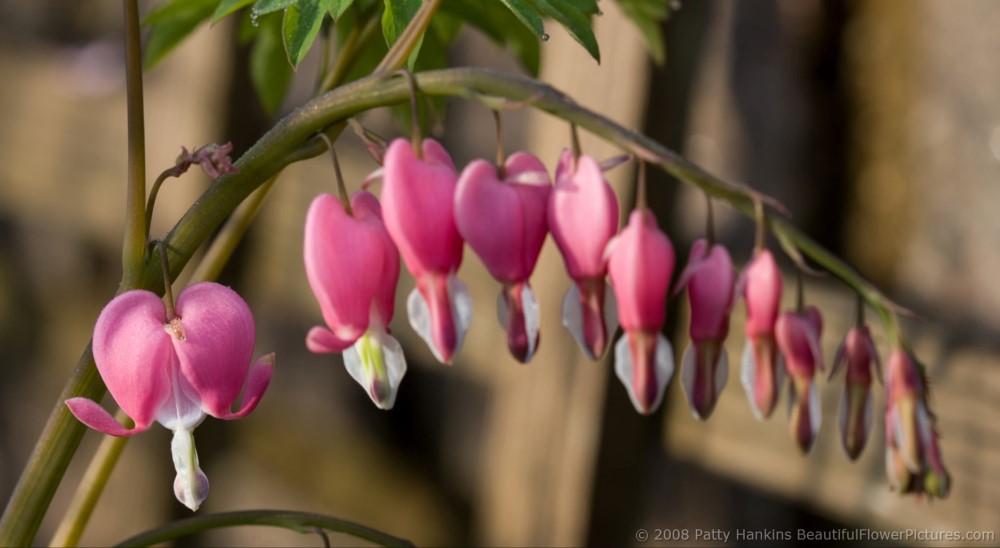
Bleeding Hearts © 2008 Patty Hankins
So I switched to portrait orientation and moved in closer so I only had a few flowers in my photo. I also switched to my macro lens. Just didn’t like the light wood background or that the flowers in the upper right were in front of the main subject and out of focus. Still not right.
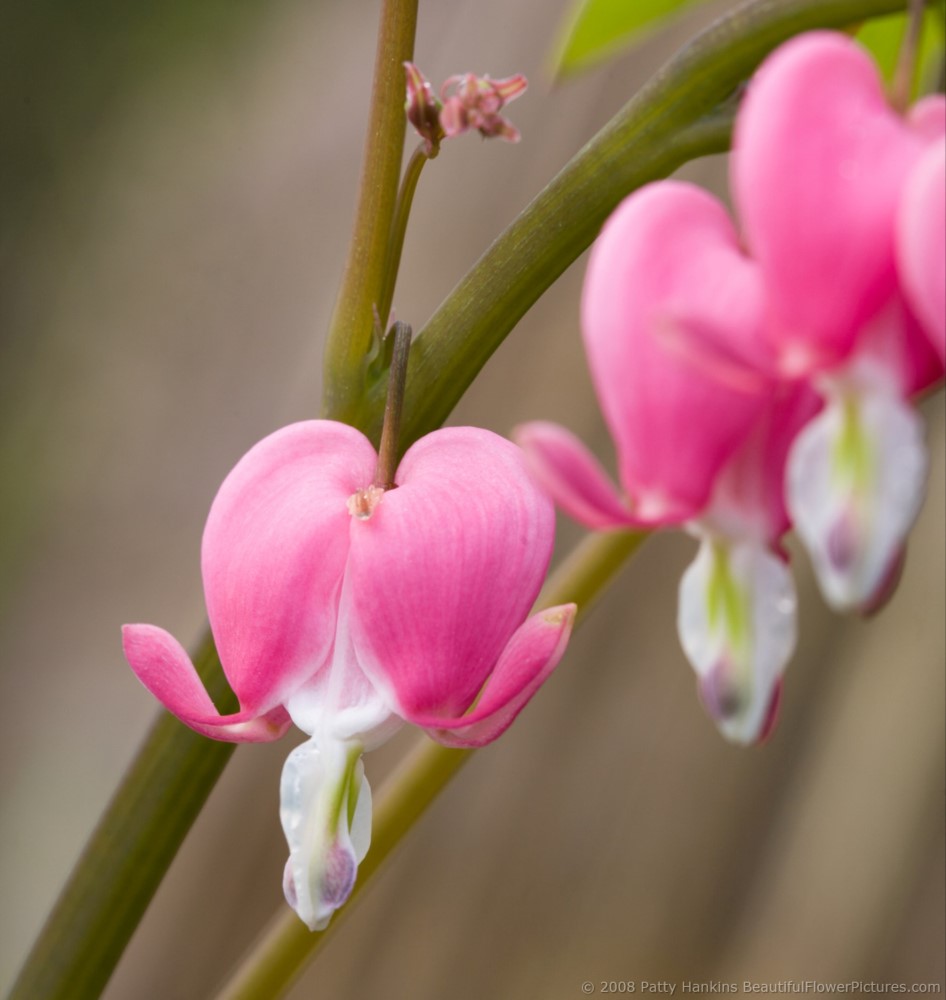
Bleeding Hearts © 2008 Patty Hankins
So I moved my tripod again so that the flowers were backed by green leaves instead of the brown wood and that I was further away from the bleeding hearts. This gave me the opportunity for a wider angle photo showing an entire branch of the flowers including the buds at the end. Better – but still not quite what I wanted.
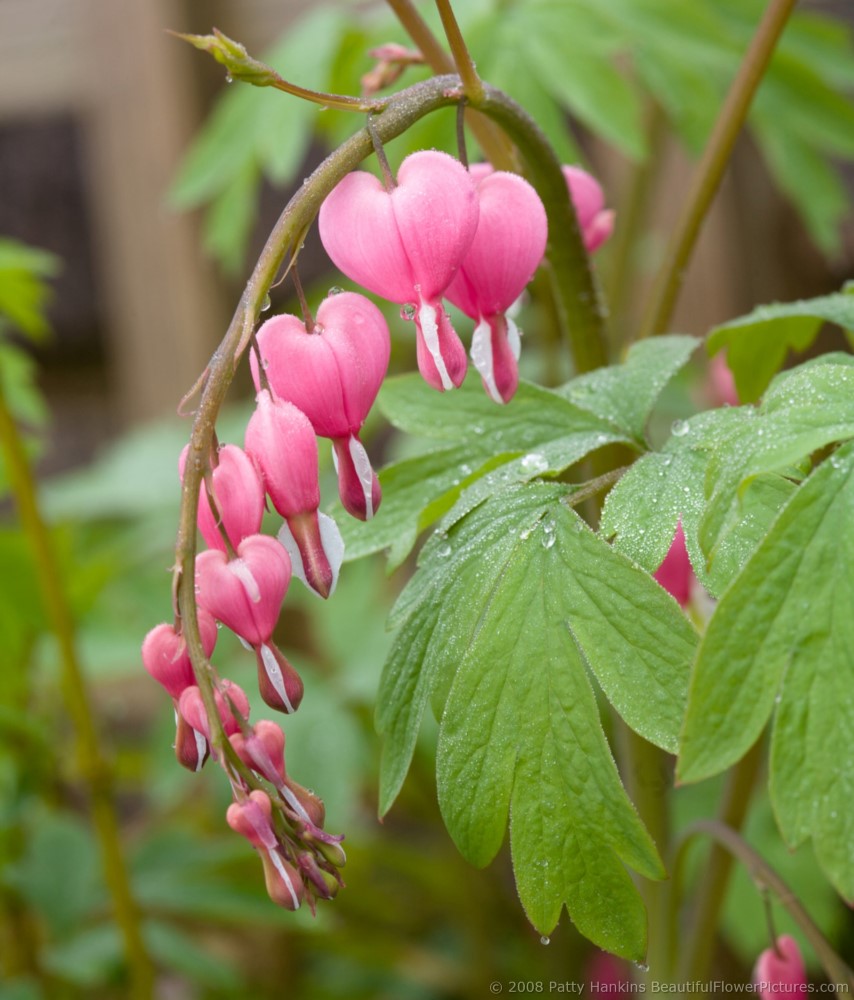
Bleeding Hearts © 2008 Patty Hankins
So I moved my tripod one more time – this time in a little closer and switched back to landscape orientation knowing I’d crop to a square for the final photo. I focused in on just a few of the heart shaped blossoms, made sure the water droplets were in sharp focus, and that the branch would act as a leading line to draw your eye through the photo. Finally I had my photo – and this has been one of my best selling photos over the years.
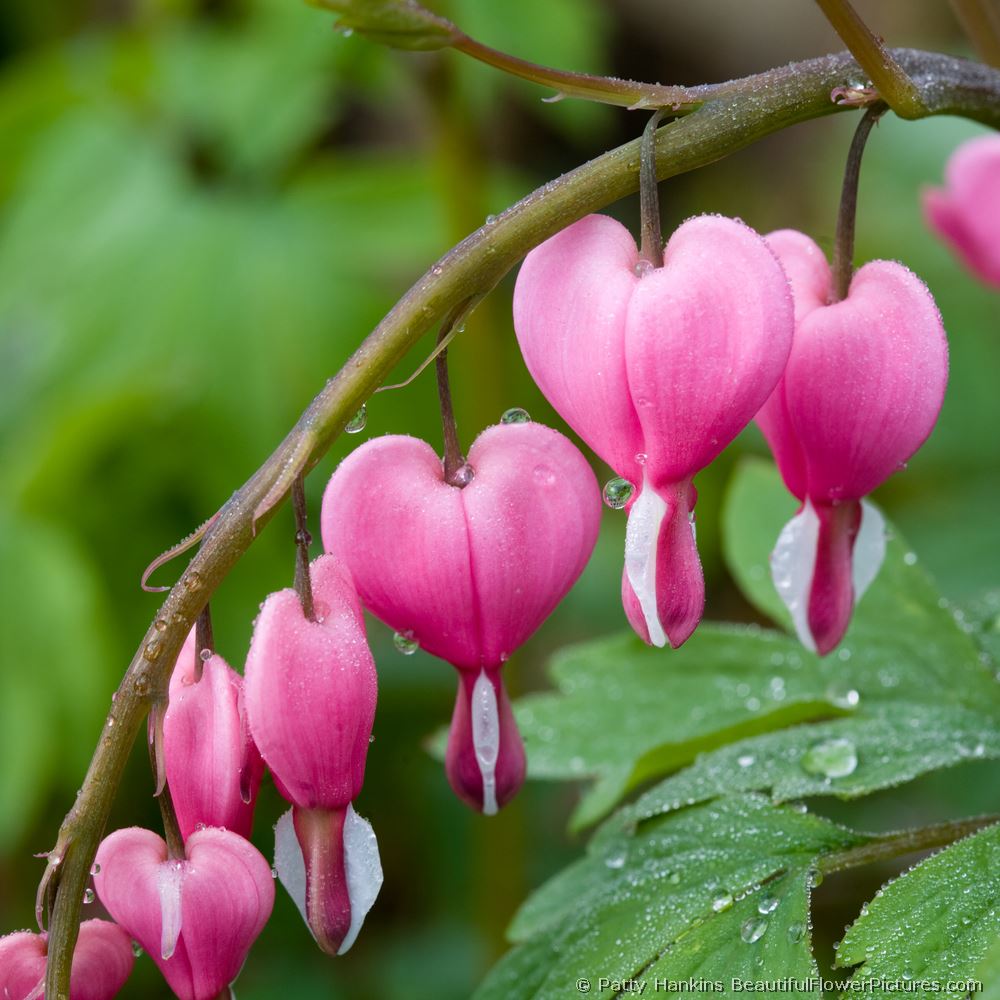
Bleeding Hearts © 2008 Patty Hankins
And if you are photographing at a botanical garden there’s one more photo you really should take when you are working the scene – a photo of the identification sign so you know what flower you’ve been photographing.
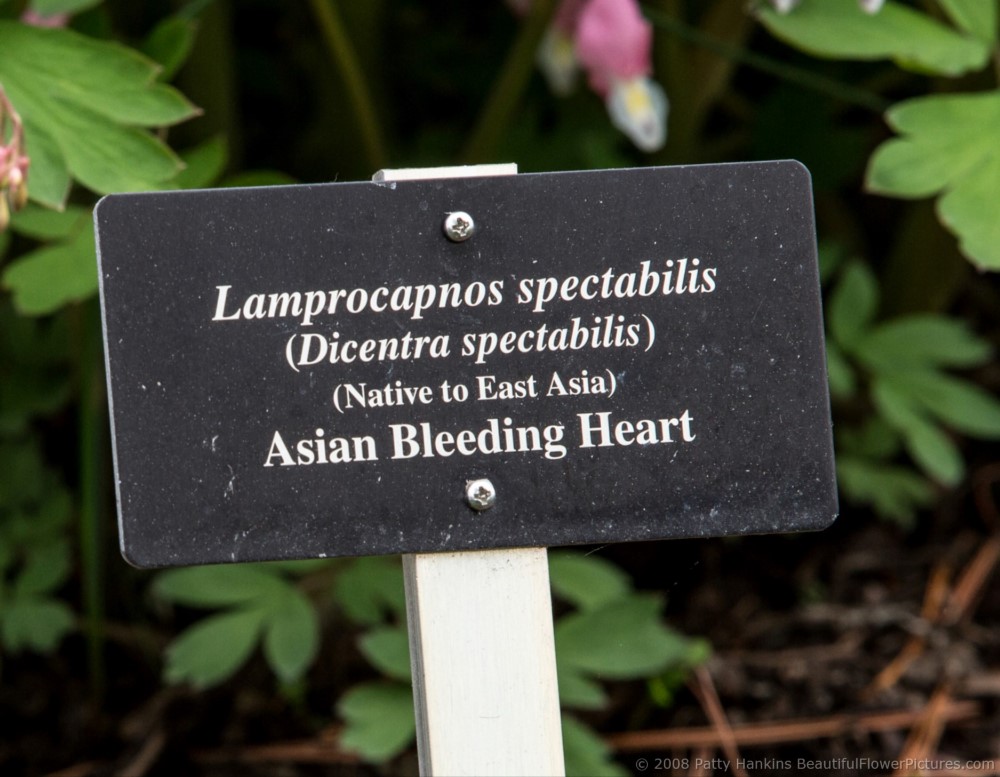
Bleeding Hearts © 2008 Patty Hankins
Working the scene is one of the ideas we’ll be talking about and practicing during my July 15-17 workshop – Photographing Flowers (Without Swearing at Your Camera). There are still a few spaces open in the workshop. I’d love to have you join me for a weekend of photographing flowers.
All the details about the workshop and registration information is at http://beautifulflowerpictures.com/photographing-flowers-without-swearing/.
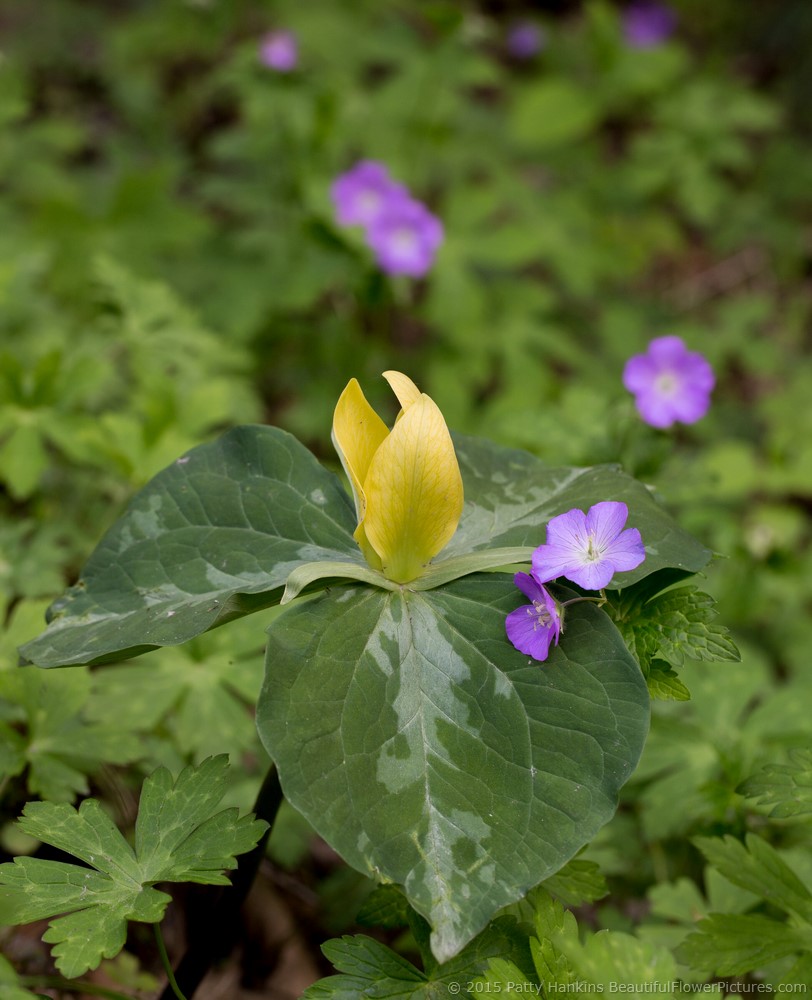
by hankinslawrenceimages | Aug 21, 2015 | Caryophyllaceae Family, Flowers, Liliaceae Family, Papaveraceae Family, Tennessee, Wildflowers
As I was looking through the huge (and I do mean huge) pile of photos that I haven’t weeded, much less edited or shared on my hard drive – I found some of my wildflower photos from my trip to the Great Smoky Mountains National Park from last spring. One of the challenges of taking lots of photos – is that I always feel like I’m behind on sharing my photos
So today I thought I’d share a few of my wildflower photos from last spring. I don’t have enough good photos of the flowers to do a separate blog post for each type of flowers – so am combining a few of them into one post
Wild Bleeding Hearts – dicentra eximia – is a delicate member of the Poppy family. I know a couple spots in the park where these bloom each year – if you look closely at some of my photos of wild bleeding hearts from the Smokies – you’ll see that many of them were taken in the same general area.
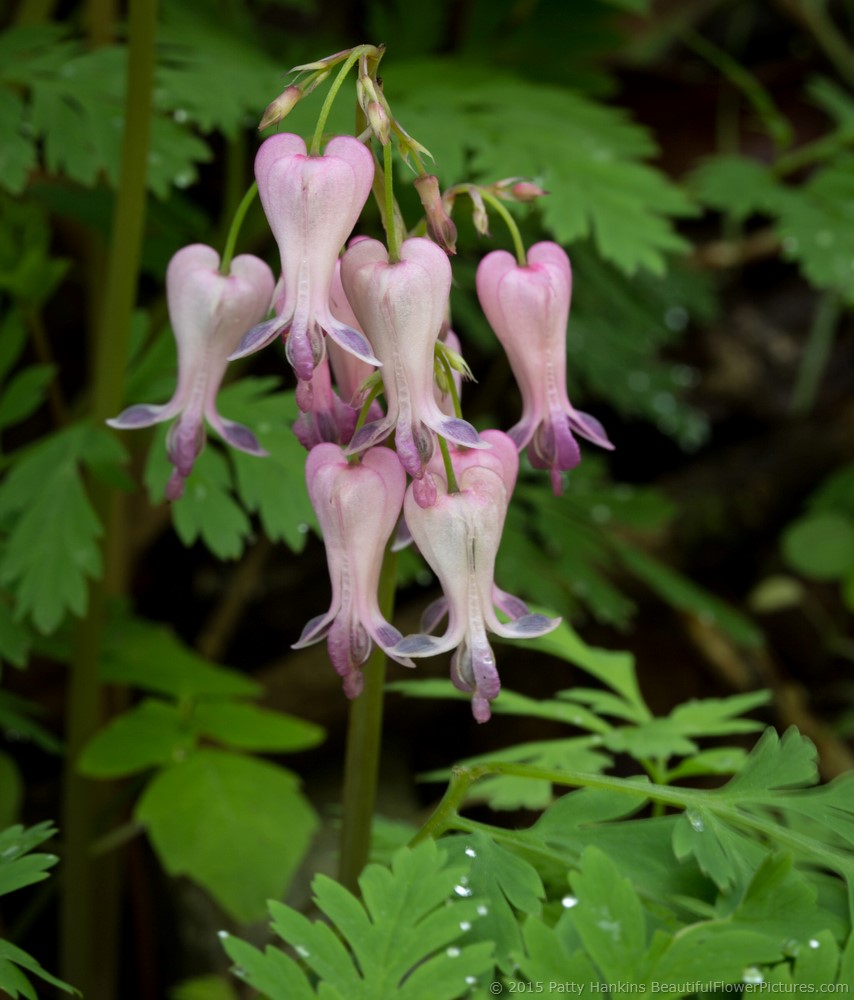
Wild Bleeding Hearts – dicentra eximia © 2015 Patty Hankins
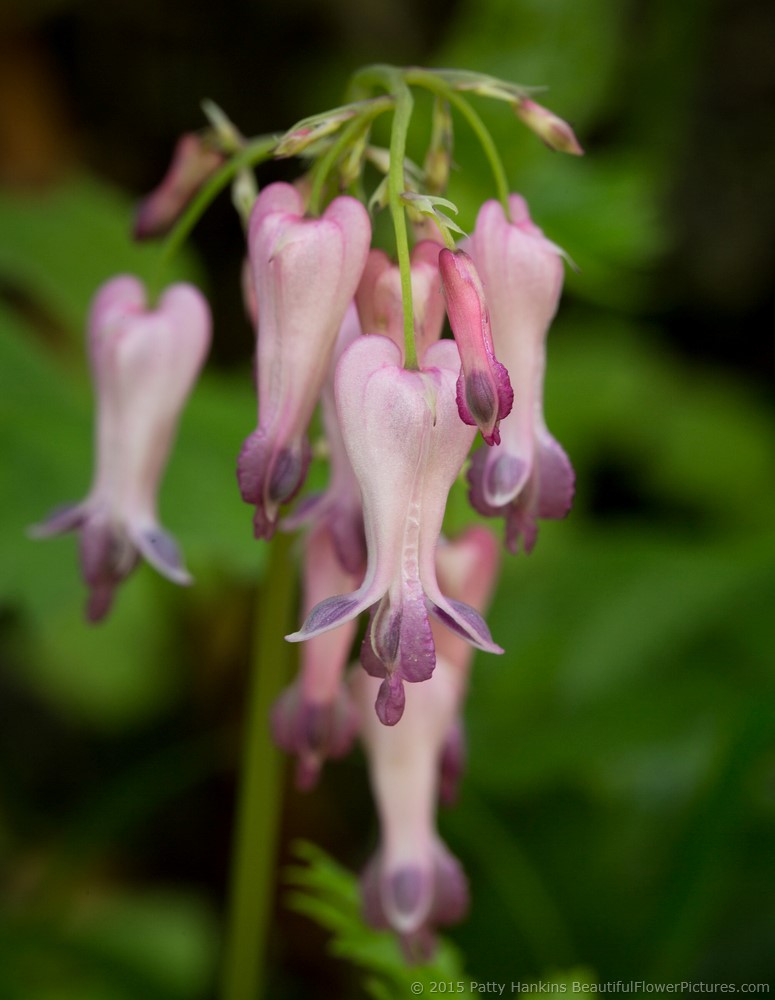
Wild Bleeding Hearts – dicentra eximia © 2015 Patty Hankins
Fire Pinks – silene virginica – are about the only bright red spring wildflowers so it’s fairly easy to spot on the trails and roadsides. The challenge with fire pinks is finding them in good enough shape to photograph. The flowers are very delicate so it’s not uncommon to see pretty ratty looking Fire Pinks.
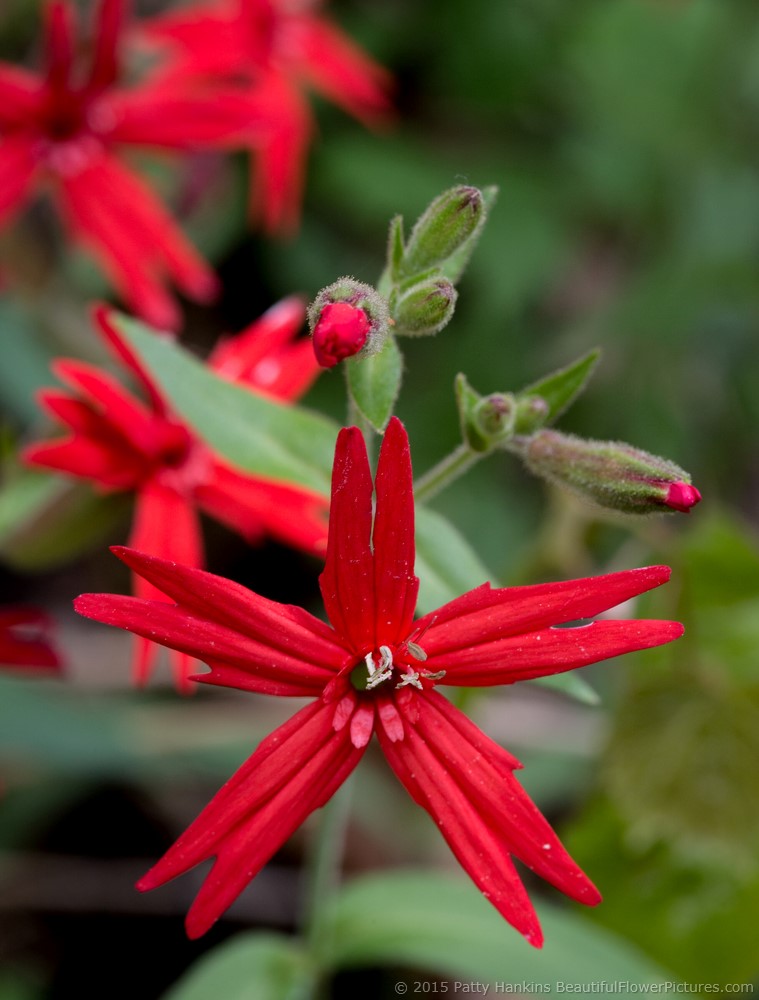
Fire Pinks – silene virginica © 2015 Patty Hankins
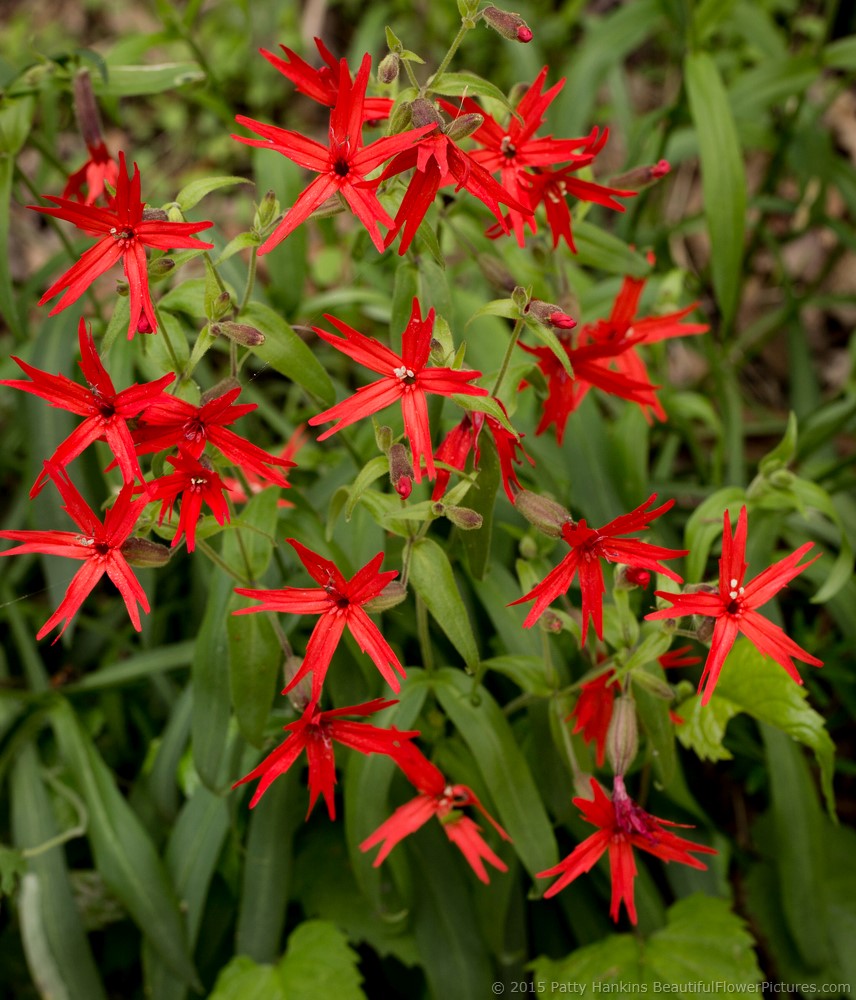
Fire Pinks – silene virginica © 2015 Patty Hankins
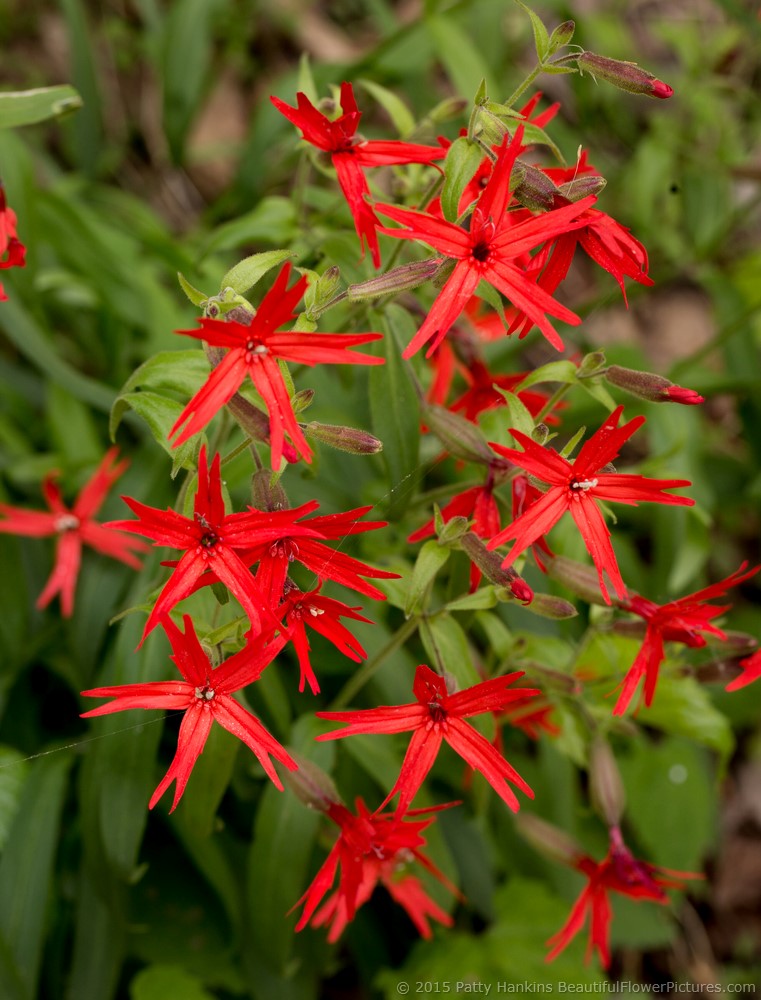
Fire Pinks – silene virginica © 2015 Patty Hankins
Yellow Trillium – trillium luteum – is one of the wildflowers that the Great Smoky Mountains National Park is known for. Native only to Georgia, Tennessee, North Carolina and Kentucky, I try to photograph them every time I’m in the park – since it’s the only time and place I’m likely to see them.

Yellow Trillium – trillium luteum © 2015 Patty Hankins
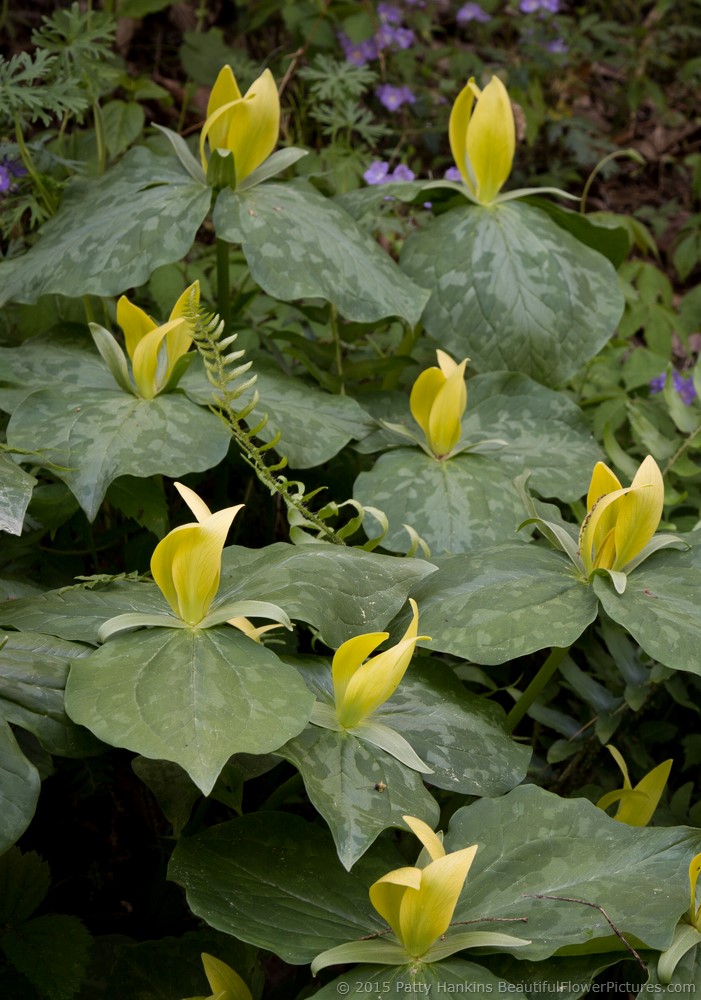
Yellow Trillium – trillium luteum © 2015 Patty Hankins
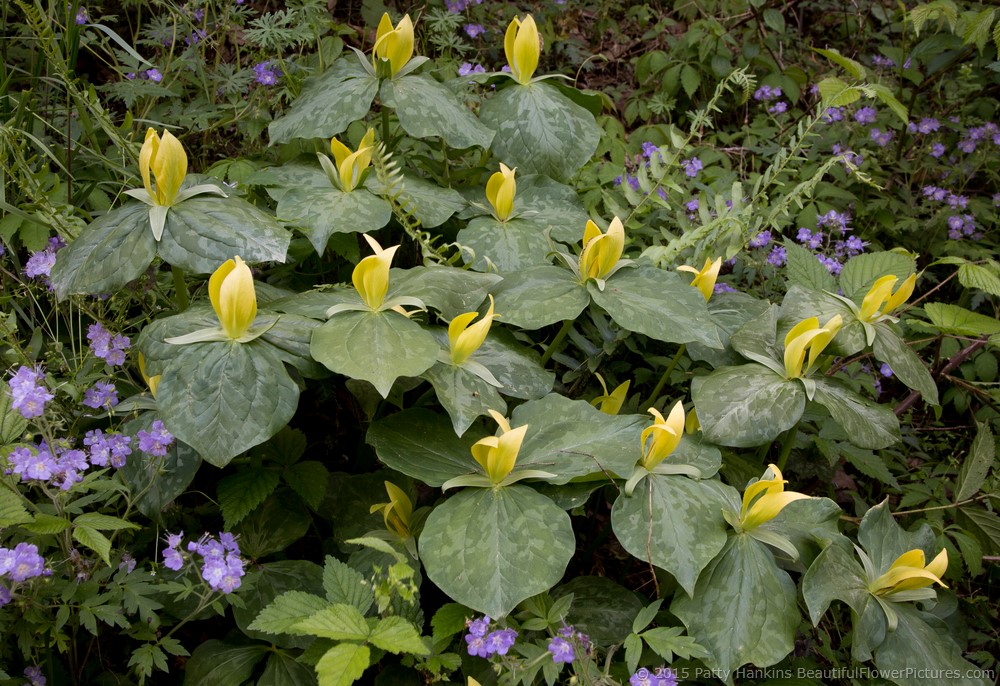
Yellow Trillium – trillium luteum © 2015 Patty Hankins
I haven’t had a chance to edit up any of these photos for sale yet – but I do have a number of other wildflower photos available, including several from the Great Smoky Mountains National Park. You can see which of my wildflower photos are available as matted prints or gallery wrapped canvases in the Wildflower Gallery on my website.

by hankinslawrenceimages | Jan 12, 2015 | Flowers, New Photos, Papaveraceae Family

Along the Fence © 2014 Patty Hankins
I’ve recently added a new photo – Along the Fence – to my BeautifulFlowerPictures.com website.
Bleeding hearts (one of my favorite spring flowers) and cats – of course I’m going to photograph them together. When I saw this spectacular scene in the Children’s Garden at the Coastal Maine Botanical Garden I know I had to photograph it. At the time – I called this the cutest garden fence ever – and nothing has happened to change my mind. I’ve displayed Along the Fence at a couple of shows and the reactions to it have been priceless. The number of people stopping, pointing and saying “It’s so cute!” has surprised even me. I can only hope this photo makes you smile as much as seeing the bleeding hearts along the fence made me smile.
This photograph is available as a matted photo. You can order Along the Fence from my website.



































